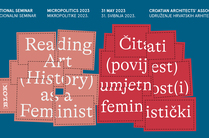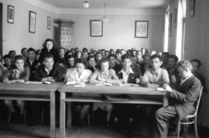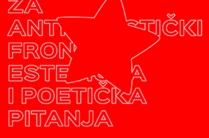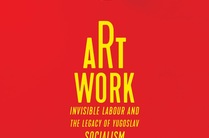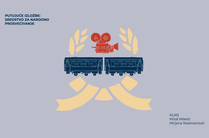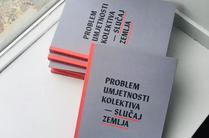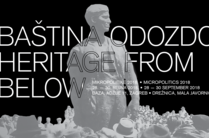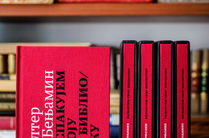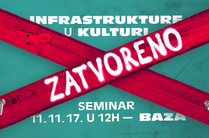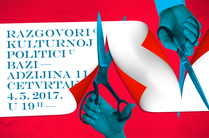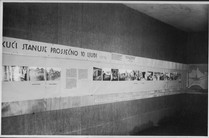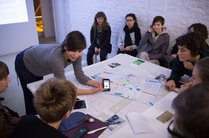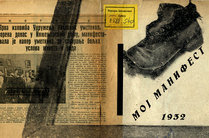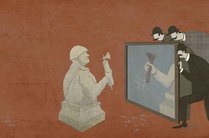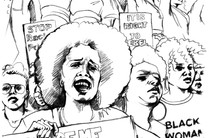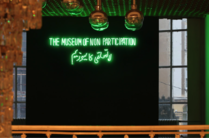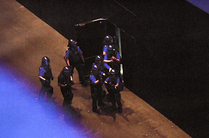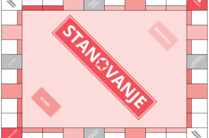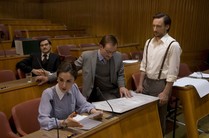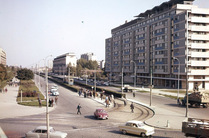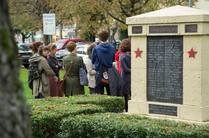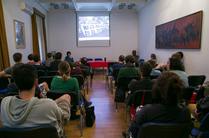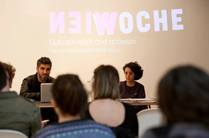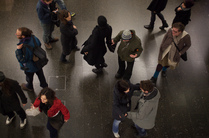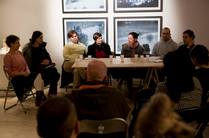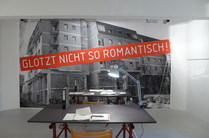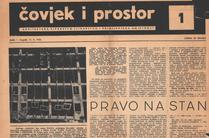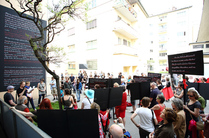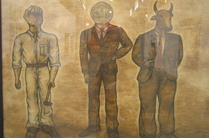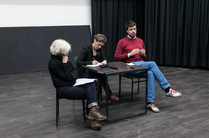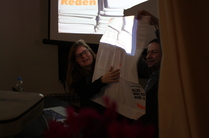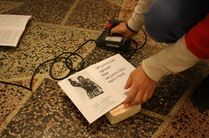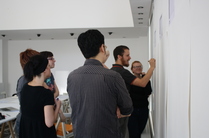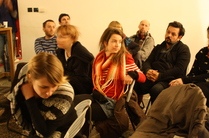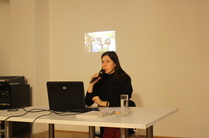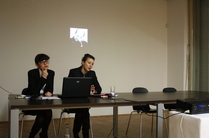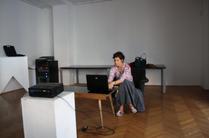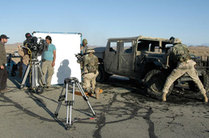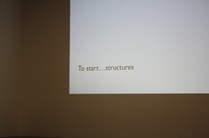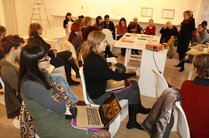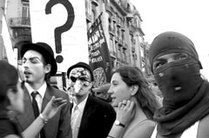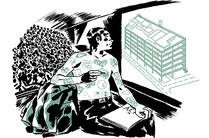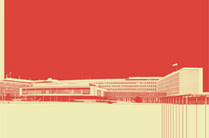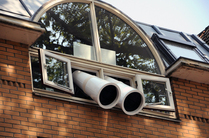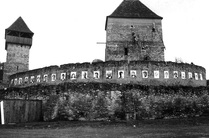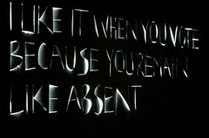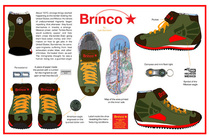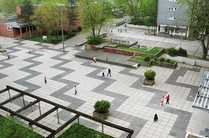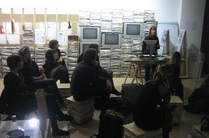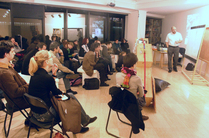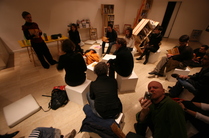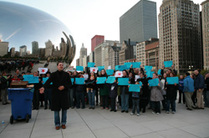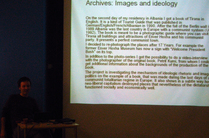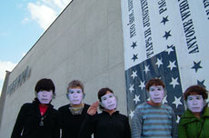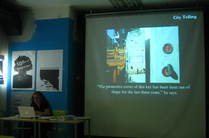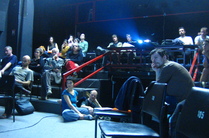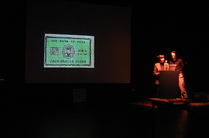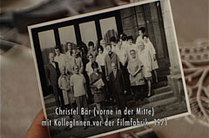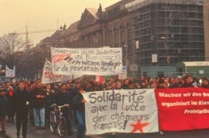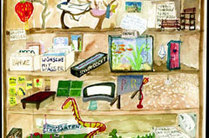Iva Marčetić: Workshop on Housing
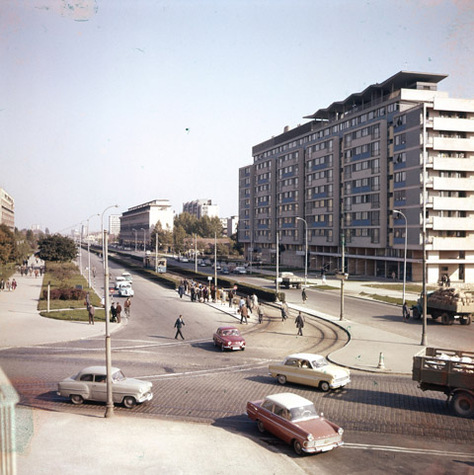
Tuesday, February 17, 2015
Location: Rooms of MAZ (Network of Women Antifascists Zagreb) at the Union of Croatian Antifascist Veterans and Antifascists, Pavla Hatza 16, Zagreb
The six-hour workshop is divided into three working modules conceived so as to cover in a brief period of time the basics of housing policies and the ways in which they have produced urban space on the one hand and individual debts combined with the social crisis on the other. The first part of each model offers an introduction into a particular topic linked to a housing issue, followed by a free discussion. We will discuss, for example, whether and to which extent the apartment can be an individual right, and how that right can be protected. Eventually, after an introduction on the existing activist networks, particularly at the periphery of the EU, we will focus on tools for activism and discuss the current activities in this field, as well as the way in which activism can influence the political debate or shake the fundamental approaches to the problem of housing. Workshop moderator: Iva Marčetić (architect, Right to the City).
SCHEDULE:
INTRODUCTION > 10:30 – 11:00 a.m.
MODULE 1 > 11:00 a.m. – 1:00 p.m.
- production and housing in Yugoslavia: the case of Sisak’s ironworks
- housing policies in Croatia from 1991 until today
MODUL 2 > 1:00 – 3:00 p.m.
- right to an apartment or right to ownership: relationship between ownership and lease
- debt and housing
(break)
MODUL 3 > 4:00 – 6:00 p.m.
- between right and machination: activism at the European periphery
- solidarity in housing
CONCLUSIONS > 6:00 – 7:00 p.m.
Workshop is a part of collaboration program between Micropolitics and Urban Planning for Beginners.
Urban Planning for Beginners is an educational-informative project involving several partners, which focuses on the basic issue of urbanity, the perception and articulation of space, architecture, urban planning, design, and art in public space, including the ways in which they are formed, used, and planned under the economic pressure and changes produced by the accelerated construction and exploitation of natural and urban environment. Platform partners: associations Art Workshop Lazareti, [BLOK], KA-MATRIX, The Other Sea, Right to the City, Platform 9.81; institutions Multimedia Cultural Centre Split and Museum of Modern and Contemporary Art Rijeka.
The lecture and discussion series Micropolitics was launched late in 2005 with the aim of presenting artworks to a wider social community, as well as curatorial positions and art institutions that insist on the democratic models of production and representation. In a climate still dominated by art that is insensitive to the social circumstances in which it has been created and focuses narrowly on professional audiences, Micropolitics offers room for a reflection and valorization of those artworks that communicate specific social and political issues. Such artworks are often a result of collective work, synergy between artistic strategies and various scientific methodologies or insights, but also activist movements, often with active audience participation. In formats ranging from lectures, discussions, and screenings to essay collections and thematic issues of scholarly journals, we seek to introduce new theoretical instruments and to broaden the discussion, as well as to re-examine some of the universally accepted postulates (such as the autonomy of art, the political character of art, the process-product dichotomy, participation, and so on) by using a different modality of discussion. At the time when austerity measures are oppressing art institutions particularly heavily, pushing them into a complete commodification of services and resources, it seems that making the field sensitive for systemic insights has become the only way to preserve them. Since 2013, we have been placing a special emphasis on workshops for students, since there is a chronic lack of opportunities where they could become acquainted with critical and engaged practices, which is why Micropolitics often complement university programmes. The programme also includes publishing activity.
Editor: Vesna Vuković

